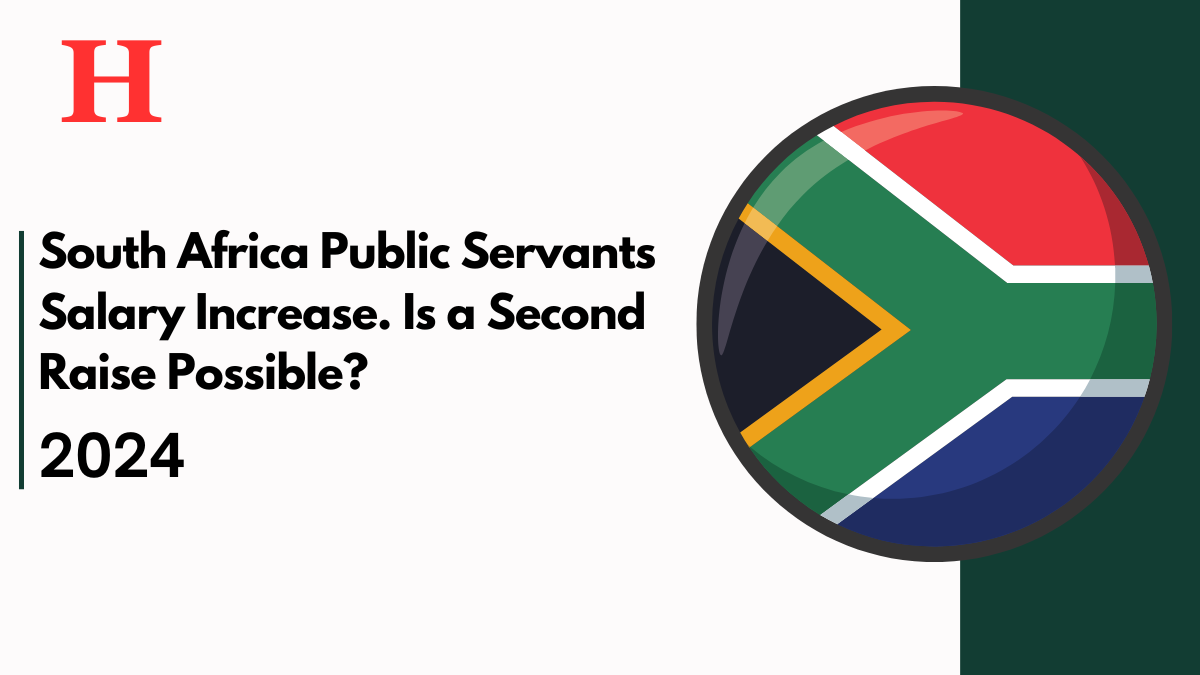South Africa is gearing up for a significant change in its public sector compensation structure. Starting April 1, 2024, public servants in national and provincial departments will receive a 4.7% salary increase. This adjustment, announced by Minister Ms. Noxolo Kiviet for the Public Service and Administration , is aimed at employees who fall within the non-Senior Management Service (SMS) on salary levels 1 to 12. This marks a critical step in balancing fair wages with the nation’s economic realities.

South Africa Public Servants Salary Increase for 2024
Key Highlights
- Effective Date: April 1, 2024
- Increase: 4.7% wage hike
- Applicable Employees: Non-SMS employees (Salary levels 1-12)
Let’s dive deeper into the reasons behind this decision and the implications for both the government and public servants.
The Decision Behind the Salary Increase
The decision to increase wages comes after a comprehensive review of South Africa’s current economic conditions. Minister Kiviet emphasized that the government aims to ensure public servants are fairly compensated, while maintaining fiscal responsibility.
Influencing Factors
- Economic Conditions: South Africa’s challenging economic landscape necessitates careful budgeting.
- Fiscal Responsibility: The government must manage resources prudently while ensuring public servants are rewarded for their service.
- Talent Retention: Competitive wages are necessary to attract and retain skilled workers in the public service sector.
Government’s Promise to Public Servants
The South African government has long recognized the importance of public servants in maintaining and delivering essential services. Minister Kiviet reiterated the government’s dedication to making the Public Service an employer of choice, it offers not only competitive salaries but also opportunities for career advancement and personal growth.
Broader Initiatives
- Professional Development: Creating opportunities for growth and upskilling public servants.
- Recognition of Hard Work: Acknowledging the dedication of public servants through fair compensation and additional benefits.
Union Reactions: Dissatisfaction Over the 4.7% Increase
Not all stakeholders are pleased with the announced 4.7% wage increase. Several trade unions, including the the South African Policing Union (Sapu), Police and Prisons Civil Rights Union (Popcru), and the National Education, Health and Allied Workers’ Union (Nehawu), have expressed their dissatisfaction. They argue that the increase falls short, especially when compared to the inflation rate, and are pushing for a higher adjustment.
Key Concerns
- Inflation vs. Salary: Unions claim the increase does not match inflation.
- Threats of Strike: Unions have signaled potential strike action if demands are not met.
The Public Servants Association (PSA), representing over 245,000 state office employees, is now following a more cautious approach. According to PSA’s general manager, Reuben Maleka they plan to monitor inflation trends throughout the year and will demand adjustments if inflation rises above the reflected Consumer Price Index (CPI).
Financial Implications of the Salary Increase
The salary hike will significantly impact the national budget over the next few years. The National Treasury has earmarked R754.2 billion for public sector wages for the 2024/25 fiscal year, marking a R33.1 billion increase from the previous year.
| Fiscal Year | Total Salary Expenditure | Increase |
|---|---|---|
| 2024/25 | R754.2 billion | R33.1 billion |
| 2025/26 (Projected) | R788.6 billion | |
| 2026/27 (Projected) | R822.5 billion |
This spending accounts for nearly 30% of the national budget’s total expenditure of R2.4 trillion for the current fiscal year. Managing public sector salaries remains a crucial financial challenge, especially given South Africa’s competing national priorities.
Additional Benefits for Public Servants
In addition to the 4.7% salary increase, many public servants will also benefit from an additional 1.5% pay progression, which is based on both years of service and individual performance. This serves as an extra incentive for long-serving and high-performing employees.
Ongoing Negotiations for Benefits
- Housing Allowances: Potential increase to align with inflation.
- Medical Benefits: Discussions to improve medical benefits packages, ensuring that public servants receive comprehensive coverage that reflects the rising cost of living.
Balancing Fair Compensation with Fiscal Responsibility
The 4.7% increase represents a delicate balance between ensuring public servants are fairly compensated and managing the country’s fiscal resources. However, union dissatisfaction highlights that this may not be the final chapter in the public service wage saga. Ongoing negotiations and potential inflationary pressures could lead to further adjustments in the future.
Key Takeaways
- The government is committed to providing competitive compensation while maintaining fiscal responsibility.
- Union dissatisfaction suggests there may be further wage negotiations.
- Public servants stand to benefit not only from salary increases but also from additional benefits like housing and medical allowances.
What Lies Ahead for Public Servants?
While the salary increase is a positive step, the road ahead may involve further discussions and negotiations, especially as inflationary trends evolve. South Africa’s government remains determined to support its public servants, but it must do so in an economically sustainable manner.
Future Considerations
- Inflation Monitoring: Unions are keeping a close eye on inflation rates to ensure that salaries keep pace with the rising cost of living.
- Benefit Improvements: Housing and medical allowances are likely to improve in the near future.
Conclusion
the government’s efforts reflect a clear commitment to balancing the needs of public servants with South Africa’s economic realities. Public sector employees can anticipate not only wage increases but also potential enhancements to their overall compensation packages as discussions progress.
Click here to know more

Sailza is a passionate writer known for her commitment to originality and quality. She crafts engaging, plagiarism-free content that captivates and informs. With a talent for storytelling and attention to detail, her work reflects her dedication to delivering insightful, creative, and authentic writing.



